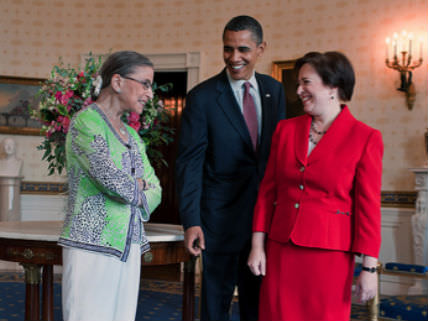DISTRICT OF COLUMBIA v. HELLER (No. 07-290)
Justice Stevens, with whom Justice Souter, Justice Ginsburg, and Justice Breyer join, dissenting.
The Court’s announcement
of a new constitutional right to own and use firearms for private purposes upsets that settled understanding, but leaves for future cases the formidable task of defining the scope of permissible regulations. Today judicial craftsmen have confidently asserted that a policy choice that denies a “law-abiding, responsible citize[n]” the right to keep and use weapons in the home for self-defense is “off the table.”
Ante, at 64. Given the presumption that most citizens are law abiding, and the reality that the need to defend oneself may suddenly arise in a host of locations outside the home, I fear that the District’s policy choice may well be just the first of an unknown number of dominoes to be knocked off the table.
39
Those 4 politicians in black robes completely abandoned
United States v. Cruikshank
92 U.S. 542 (1875)
The right there specified is that of "bearing arms for a lawful purpose." This is not a right granted by the Constitution. Neither is it in any manner dependent upon that instrument for its existence. The second amendment declares that it shall not be infringed, but this, as has been seen, means no more than that it shall not be infringed by Congress. This is one of the amendments that has no other effect than to restrict the powers of the national government
In the Cruikshank case the dissent DID NOT dispute that WE THE PEOPLE have a right to bear arms for a lawful purpose
So folks , if Hillary wins she will nominate a "justice" who agree that we do not have a right to bear arms for a lawful
purpose
You have been warned
Wrong again, as usual.
The dissenting opinions in
Heller held that the Second Amendment right was a collective, not individual, right.
Their position was that the
interpretation was new, recognizing an individual right, not that the right itself was ‘new.’
And all appointments to the Supreme Court made by Clinton will have no desire or motive whatsoever to overturn
Heller, which they consider settled, accepted case law:
“
Heller is unlikely to be overturned. There are several high-profile cases that are likely to be reversed by a liberal Supreme Court, such as
Citizens United and
Shelby County.
Heller, however, is not one of them. While there is no doubt that several of the justices believe
Heller was wrongly decided, they have little reason to overturn the decision and every reason to maintain it.
Heller was a narrow decision that did not fundamentally reshape America’s regime of gun laws. The Court held that individuals have a right to have handguns in their homes. But only two cities, Washington and Chicago, and no states, had laws prohibiting handgun possession. (Chicago allowed residents to have long guns for self-defense.) In the eight years since
Heller, there have been several hundred lawsuits challenging nearly every type of gun law on the books. Only a few laws, however, have been invalidated.
Even the justices who dissented in
Heller now understand that the decision has not proved to be a roadblock to effective gun laws. All the laws at the top of the gun-control agenda—universal background checks, assault-weapons bans, and restrictions on high-capacity magazines—have all survived judicial scrutiny since
Heller. Why would justices favorable to gun control vote to overturn a case that doesn’t actually stop lawmakers from regulating guns?”
A Liberal Supreme Court Will Not Impact Gun Laws
Why indeed.
